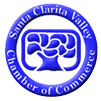[CalChamber] – Several new employment laws will impact California employers’ day-to-day operations and policies in 2012. This white paper runs through a list of these new laws. Unless specified, all new legislation goes into effect on Jan. 1, 2012.
* Credit Check
AB 22 prohibits employers and prospective employers, not including certain financial institutions, from obtaining and using consumer credit reports (credit information) about applicants or employees.
The prohibition does not apply to “managerial positions,” defined as those who qualify for the executive exemption from overtime. This exception reinforces the need to make the correct exempt/nonexempt classification at the time you decide to recruit for an open position.
The prohibition against obtaining and using credit reports also does not apply to the following:
– Law enforcement positions and positions for which the information is required by law
– Positions that involve regular access (other than in connection with routine solicitation and processing of credit card applications in a retail establishment) to bank or credit card information, Social Security numbers, and date of birth
– Positions in which the person is, or would be, a named signatory on the employer’s bank or credit card account, or authorized to transfer money or enter into financial contracts on behalf of the employer
– Positions that involve access to confidential or proprietary information, as defined . Positions that involve regular access to cash totaling $10,000 or more of the employer, a customer, or client during the workday
* Pregnancy Disability Leave
SB 299 requires all employers with five or more employees to continue to maintain and pay for health coverage under a group health plan for an eligible female employee who takes Pregnancy Disability Leave (PDL) up to a maximum of four months in a 12-month period. The benefits are at the same level and under the same conditions as if the employee had continued working during the leave period.
Under current law, employers were only required to provide benefits for pregnancy leave to the same extent and for the same length of time as they would for other temporary disability leaves. If the employer was covered by the federal Family and Medical Leave Act, it had to provide continuing coverage during the twelve weeks of FMLA leave.
The new law requires group health insurance continuation coverage for all employers with five or more employees regardless of how they treat other temporary disability leaves and regardless of FMLA coverage. Employers should review their policies to ensure compliance with this new law.
* Willful Misclassification of Independent Contractors
SB 459 provides new penalties of between $5,000 to $25,000 for the “willful misclassification” of independent contractors. Willful misclassification is defined as: “avoiding employee status for an individual by voluntarily and knowingly misclassifying that individual as an independent contractor.”
The law also imposes joint liability on non-attorney outside consultants who knowingly advise an employer to treat an individual as an independent contractor to avoid employee status.
* Written Commission Agreement
AB 1396 requires employers who have commission pay arrangements to put those agreements into a signed written contract. The written contract must set forth the method by which the commissions will be computed and paid. If the contract expires but the parties keep working under the expired contract, the contract terms are presumed to remain in effect unless superseded by a new contract or the employment relationship is terminated. The bill is effective January 1, 2013. Employers have the entirety of 2012 to bring their commission agreements into compliance.
* Notice of Pay Details
AB 469 requires employers to provide nonexempt employees, at the time of hire, a notice that specifies:
– The rate of pay and the basis, whether hourly, salary, piece commission or otherwise, including any overtime rate
– Allowances, if any, claimed as part of the minimum wage, including meal and lodging allowances
– The regular pay day designated by the employer as required under the Labor Code
– The name of the employer, including any “doing business as” names
– The physical address of the employer’s main office or principal place of business and any mailing address, if different
– The telephone of the employer
– The name, address and telephone number of the employer’s workers’ compensation carrier
The law also requires notice of any other information the Labor Commissioner deems material and necessary. The Labor Commissioner is to provide a template. The new law only applies to nonexempt employees, which again highlights the need for properly classifying employees at the time of hire.
If there is any change to the information in the notice, the employer must notify each employee, in writing, within seven calendar days of the changes, unless such changes are elsewhere reflected on a timely wage statement or other writing required by law.
This legislation also increases penalties for wage violations and makes further changes regarding collection of such penalties, including an increase in the statute of limitations.
* Organ and Bone Marrow Donor Leave
SB 272 clarifies the implementation of California’s organ and bone marrow donor leave law (Labor Code sections 1508-1512). Existing law provides up to 30 days of leave in a one-year period for organ donation and up to five days of leave in a one-year period for bone marrow donation. The new legislation clarifies that the days of leave are business days, not calendar days, and that the one-year period is measured from the date the employee’s leave begins. Existing law stated that employers’ could require use of sick and vacation leave, but did not mention paid time off (PTO). The new legislation clarifies that employers can require the use of a specified number of earned but unused days for PTO.
* Genetic Information
SB 559 amends the Fair Employment and Housing Act (FEHA) to state that employers are prohibited from discriminating against employees on the basis of genetic information. The legislature noted that the range of protection provided by the federal Genetic Information Nondiscrimination Act (GINA) is not complete for California. Also, FEHA applies to employers with five or more employees while the federal law applies to employers with 15 or more employees.
Genetic information is defined as information about any of the following:
– The individual’s genetic tests
– The genetic tests of family members of the individual
– The manifestation of a disease or disorder in family members of the individual.
Genetic information includes: any request for, or receipt of, genetic services, or participation in clinical research that includes genetic services, by an individual or any family member of the individual. Genetic information does not include information about the sex or age of any individual.
This prohibition against discrimination on the basis of genetic information is in addition to the existing state law prohibition against discrimination based on a medical condition, including genetic characteristic.
* Gender Expression
AB 887 amends the Fair Employment and Housing Act to further define “gender” to include both gender identity and “gender expression” and to make clear that discrimination on either basis is prohibited. Current law only uses the term gender identity. AB 887 also amends Government Code section 12949 relating to dress codes to include that an employee must be allowed to dress consistently with both the employee’s gender identity and gender expression.
“Gender expression” is defined as “a person’s gender-related appearance and behavior whether or not stereotypically associated with the person’s assigned sex at birth.” This definition is not a change from existing law relating to gender identity.
* E-Verify
AB 1236 relates to the E-Verify program; a federally created program that allows employers to use an Internet-based system to electronically verify the employment eligibility of newly hired employees.
E-Verify compares Form I-9 documentation against federal government databases to verify employees’ employment eligibility.
AB 1236 allows employers to continue to choose to use E-Verify, but prohibits California state agencies and local governments from passing mandates that require employers to use E-Verify.
Several cities in California passed local ordinances requiring the use of E-Verify in certain circumstances. For example, a Mission Viejo city ordinance requires the city and certain employers with city contracts to verify the eligibility of new employees through E-Verify. This new law prohibits such state or local mandates, unless required by federal law or as a condition of receiving federal funds.
* Interference With Rights Under Leave Laws
AB 592 adds language to the California Family Rights Act (CFRA) and the Pregnancy Disability Leave law (PDL) that makes it unlawful to interfere with or in any way restrain the exercise of rights under these laws. This added language should not be a change to existing employer obligations since this is already a requirement under the federal Family and Medical Leave Act (FMLA).
* Administrative Penalties
AB 240 allows an employee that alleges a minimum wage violation to recover liquidated damages pursuant to any complaint brought before the Division of Labor Standards Enforcement. Existing law allows such damages in any complaint before a civil court, but not in an administrative proceeding before the Labor Commissioner. This new law would allow the Labor Commissioner to also award such damages. Under the new liquidated damages provision, the employee would be entitled to recover an amount equal to the wages unlawfully unpaid, plus interest.
* Wage Penalties
AB 551 increases the maximum penalty from $50 to $200 per calendar day for each worker paid less than the determined prevailing wage and increases the minimum penalty from $10 to $40 per day for violations of prevailing wage obligations. These obligations apply to certain state or federal contracts and generally require a set wage that is significantly higher than minimum wage.
It also increases the penalty from $25 to $100 per calendar day, per worker, against contractors and subcontractors that fail to respond to a written request for payroll records within 10 days.
* Farm Labor Contractors – Wage Notices
AB 243 amends Labor Code section 226 to expand the information that must be included on pay statements, but only for farm labor contractors. Employers that are farm labor contractors must now disclose on the itemized payroll statement furnished to their employees, the name and address of all legal entities (for example other growers or other farm labor contractors) that secured the employer’s services. The bill provides that this listing would not create any legal liability on the part of the legal entity.
* Agricultural Labor Relations
SB 126 affects certification of bargaining representatives for agricultural employees. Existing California law prohibits agricultural employers from engaging in unfair labor practices with regard to agricultural employees electing their labor representatives. Under current law, the Agricultural Labor Relations Board (ALRB) can refuse to certify an election if it determines that employer misconduct affected the election result.
The new law, SB 126, provides that if the ALRB finds employer misconduct that “in addition to affecting the outcome of the election, would render slight the chances of a new election reflecting the free and fair choice of employees,” then the ALRB can certify the labor union as the exclusive bargaining agent for employees.
* Insurance Non-Discrimination Act
Existing California law requires health care service plans and health insurance policies to provide group coverage to the registered domestic partner of the employee or insured equal to the coverage provided to the spouses of employees. SB 757 closes an existing loophole and prevents employers that operate in multiple states from discriminating against same-sex couples by not providing the same insurance coverage for domestic partners as they do for spouses.
The new law provides that every group health care service plan contract and every group health insurance policy that is marketed, issued, or delivered to a California resident is subject to the requirement to provide equal coverage to domestic partners as is provided to spouses, notwithstanding any other provision of law. Under the new law, even if the employer’s principal place of business and majority of employees are located outside of California, no policy or certificate of health insurance marketed, issued or delivered to a California resident shall discriminate between spouses or domestic partners of a different sex and spouses or domestic partners of a same sex.
A willful violation of this provision by a health care service plan is a crime.
* State Contracts – Gender or Sexual Orientation Discrimination
SB 117 outlaws the state of California from entering into contracts of more than $100,000 with companies that discriminate against the employees on the basis of gender or sexual orientation with regard to benefits. Existing law prohibits discrimination between employees with spouses and employees with domestic partners. The new law makes it clear that companies doing business with the state of California cannot deny equal benefits to same-sex spouses.
* Apprentice Programs
SB 56 changes the audit requirements for apprenticeship programs. Currently, the Division of Apprenticeship Standards within the Department of Industrial Relations is required to randomly audit all apprenticeship programs during each five-year period to ensure compliance with specified requirements, including industry-specific training criteria. This new law eliminates the mandate of random audits during five-year increments, and instead directs the Division to conduct audits of apprenticeship programs generally. It also creates requirements for applications for building and construction trades programs for approval of a new or expanded apprenticeship program.
* Safe Lifting – Hospitals
AB 1136 provides that general acute care hospitals must maintain a safe patient handling policy for patient care units, including trained lift teams or training in safe lifting techniques for staff. The safe patient handling policy must be kept in accordance with the California Occupational Safety and Health Act and should be part of the Injury Illness and Prevention Program (IIPP) of these specific employers.
* Workers’ Compensation Legislation
The governor signed these five workers’ compensation bills that were all supported by CalChamber.
– AB 335 – Requires the workers’ compensation administrative director (AD) to work with the Commission on Health and Safety and Workers’ Compensation (CHSWC) to develop regulations regarding notices to injured workers; requires AD and CHSWC to develop and make accessible a booklet written in plain language about the workers’ comp claims process; streamlines and simplifies other notices to employees.
The new law also states that workers’ compensation notices posted by employers must now include the website address and contact information that employees may use to obtain further information about the workers’ compensation claims process and an injured employee’s rights and obligations, including the location and telephone number of the nearest information and assistance officer. The administrative director is required to make available on the department’s website informational material regarding the workers’ compensation claims process, written in plain English.
– AB 378 – Lowers workers’ compensation costs by establishing guidelines for dispensing compound drugs, the circumstances under which those drugs would be covered and the reimbursement amount, and removes the incentives for physicians to refer patients to pharmacies in which the physician or physician’s family has a financial interest.
– AB 397 – Seeks to address the underground economy problem by singling out contractors that do not have workers’ compensation coverage but requiring contractors that are exempt from having coverage at the time they are licensed to certify they are still exempt or have gotten coverage at the time of their license renewal.
– AB 1168 – Lowers costs for employers and insurers by establishing a fee schedule for vocational experts’ services.
– AB 1426 – Streamlines the workers’ comp process and eliminates duplicative bureaucracy and inconsistency by eliminating the court administrator position.
The governor also signed a Workers’ Compensation related bill that CalChamber took no position on:
– AB 228 – Amends California Insurance Code section 11780.5 to authorize the State Compensation Insurance Fund (SCIF) to provide workers’ compensation coverage to a California employer whose California employees temporarily work outside the state and whose injuries while performing out-of-state work might lead to workers’ compensation liability in some other state.
Under existing law, SCIF could rightfully deny coverage for out-of-state workers’ compensation claims, creating the risk of personal injury lawsuits by employees as a result of their employer not having workers’ compensation insurance coverage in place for such injury claims. The new law expands coverage through partnerships between SCIF and other qualifying carriers, who insure workers’ compensation risks in California, and the other states where the California employees are temporarily working.
* DFEH Procedural Regulations
Effective October 7, 2011, the Department of Fair Employment and Housing (DFEH) has instituted new regulations relating to procedures for filing, investigating and processing discrimination and harassment claims. DFEH is the state agency charged with enforcing the state Fair Employment and Housing Act and handling complaints of discrimination and harassment. Overall, the regulations make it easier for claimants to file their complaints and initiate a DFEH investigation.
For example:
– The statute, as written, requires that a complaint filed with the DFEH be “verified.” The new regulations do not require the claimant to sign the complaint. Instead, the complaint can be signed by the claimant’s attorney or other designated representative.
– The DFEH will accept an unsigned complaint if neither the claimant nor an authorized representative can sign it before the statute of limitations expires. The Fair Employment and Housing Commission, which hears cases brought before it by the DFEH, objected to this regulation on the ground that it contradicts the statutory requirement, but the DFEH disagreed and issued the regulation.
– The new procedural regulations allow for liberal construction of complaints.
— For example, if a claimant brings a complaint alleging only discrimination, but the DFEH believes the facts could support retaliation, the DFEH will construe the complaint to allege both discrimination and retaliation even though the claimant did not bring any such claim. As a result, it will be harder for employers to dismiss claims on the ground that the employee never raised the claim before the DFEH.
– The new procedural regulations allow the DFEH to accept complaints that appear untimely on their face and investigate whether the complaint actually was brought within the statute of limitations. This makes it easier for claimants and less likely that employers can have the claim dismissed at an early stage.
For more information on the DFEH regulations, visit www.dfeh.ca.gov.
Like this:
Like Loading...
Related




 Tweet This
Tweet This Facebook
Facebook Digg This
Digg This Bookmark
Bookmark Stumble
Stumble RSS
RSS




























REAL NAMES ONLY: All posters must use their real individual or business name. This applies equally to Twitter account holders who use a nickname.
No Comments